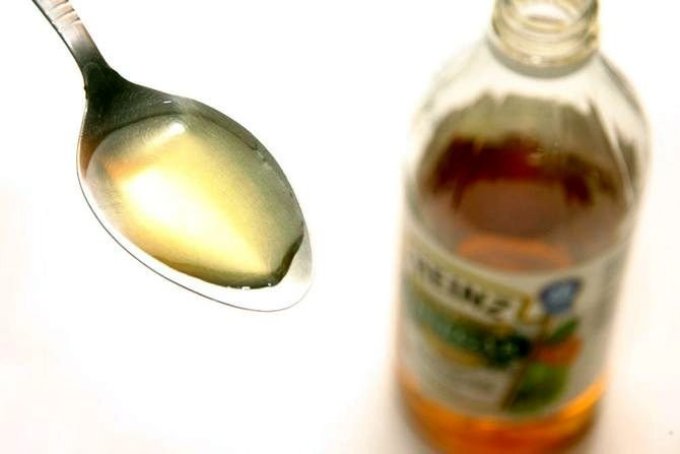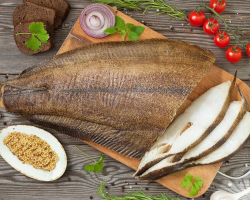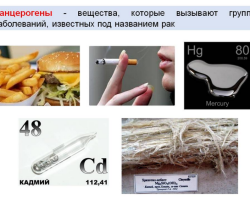The article will tell you what unique properties and advantages the wine vinegar has.
Content
- Wine vinegar - white and red: composition, benefit and harm
- Wine vinegar is a fortress: how many percent happens?
- Wine vinegar and balmsamic, apple, grape, dining room: what's the difference?
- How to drink wine vinegar for weight loss?
- Can wine vinegar for pregnant women?
- How to replace white and red wine vinegar in a salad recipe, canning, marinade, baking?
- How to use wine vinegar from acne: recipes
- How to use wine vinegar of hair: recipes of masks, rinsing
- Is it possible to extinguish soda with wine vinegar?
- How to make a home -made wine vinegar from sour wine at home?
- Video: "wine vinegar: detailed recipe"
Wine vinegar - white and red: composition, benefit and harm
Like any other vinegar, grape is the result of fermentation, in this case, wine. This product is successfully used in several areas: cooking, medicine, cosmetology. The unique qualities of wine vinegar, both white and red, are due to a rich composition.
Vine vinegar is a popular anti -inflammatory agent of internal and external action. In addition, it has disinfecting properties and the ability to act as a preservative. That is why grape vinegar was added from ancient times to food and water to “kill” pathogenic bacteria.
There are two types of grape vinegar:
- Red - wanders in oak barrels, vinegar of red grape varieties.
- White- Wandering in steel barrels, vinegar of white grape varieties.
Important: the result of vinegar fermentation largely depends on what barrel it is in. In any case, white and red vinegar is successfully used in all of the above areas. Cosmetics of home production and gas stations are prepared from it, as well as marinades for food.
The composition of the wine vinegar:
| The name of the substance | What is useful for a person |
| Pectins | It has a “sanitary” effect on the body, freeing it from accumulated toxins and slags |
| Alimentary fiber | Help to make the digestive process easier, to establish the work of the intestines, to improve the chair |
| Alcohols | Have antiseptic and disinfecting properties |
| Carbohydrates | Give a charge of energy, tone, improve brain activity, increase blood sugar |
| Apple acid | Improves body metabolism (metabolism) |
| Lactic acid | Provides the body with carbohydrates |
| Wine -stone acid | Protects the body cells from oxidation |
| Antioxidants | Prolong the youth of the body, therefore, the health and beauty of the body |
| Enzymes | Improve the digestion process, allowing you to break the food better |
| Aldehydes | Normalize the work of the nervous system |
| Vitamin A | Improves the work of the visual organs, strengthens the immune system |
| Vitamin B5 | Improves the digestibility of other vitamins by the body, stimulates the production of adrenal hormones |
| Vitamin C | Strengthens the immune system, makes it more persistent and hardy |
| Nicotinamide | Supports the health of the skin |
| Magnesium | Strengthens the nervous system, helps to fight stress, improves the work of the cardiovascular system |
| Potassium | Provides the vital activity of all soft tissues, these are blood vessels, and muscles, and the brain and all internal organs |
| Phosphorus | Nourishes muscle and bone tissue in the body |
| Fluorine | Strengthens tooth enamel |
| Calcium | Strengthens the skeleton, teeth |
| Sodium | Necessary for normal growth and condition of the body |
| Iron | Improves blood quality, increasing hemoglobin |
| Zinc | Takes care of reproductive organs, improves the condition of the hair, skin and nails |
| Manganese | Takes part in the development of cells |
| Copper | Takes part in the synthesis of hemoglobin in the blood |
The benefits of wine vinegar:
- This product is successfully used by people suffering from overweight. For weight loss, it is customary to drink a glass of cold water with 1 tbsp dissolved in it. wine vinegar on an empty stomach, before eating or right in the morning. Such a drink improves the digestive process and metabolism, helping nutrients from food to absorb faster and better.
- The rich composition of grape vinegar has a huge supply of antioxidants. It is these substances that help a person fight aging and diseases of the cardiovascular system, prolong the youth of the body and fight aging.
- The use of wine vinegar will help normalize the level of cholesterol in the blood.
- The rich vitamin composition strengthens the immune system, makes it more persistent and hardy.
- Wine vinegar is rich in all trace elements that are present in fresh grapes.
- Wine vinegar with regular use dilutes blood, which is a prevention of heart disease, plaques in the arteries.
The harm of wine vinegar:
- Like the love of vinegar, wine is an acid that has a number of its contraindications and a negative effect.
- First of all, wine vinegar can harm those who have ulcerative diseases in the digestive tract.
- You should not drink and add wine vinegar to those who suffer from gastritis.
- Vinegar can poorly affect the health of the teeth, corroding enamel, so after consumption you should definitely brush your teeth and rinse your mouth.
- Vinegar cannot be taken by those who have increased acidity of the stomach.
- Barry vinegar is also those who suffer from diseases of the liver and kidneys, cholelithiasis.

Wine vinegar is a fortress: how many percent happens?
Wine vinegar is a product obtained from grape wine. Therefore, the percentage of his fortress should be exactly half of the percentage that is present in the original drink. The strength of vinegar depends on the fortress of wine and variety. On average, the fortress of grape vinegar is 4-9%.
Wine vinegar and balmsamic, apple, grape, dining room: what's the difference?
There are several common types of vinegar and each is distinguished by its composition, and, therefore, the effect on the body. Any vinegar is used not only in cooking, but also in folk medicine and cosmetology.
Varieties of vinegar and their features:
- Grape vinegar -it turns out by fermentation, either wine or grape juice. Due to the large content of essential oil in vinegar, the liquid has a pleasant aroma. Traditionally, red vinegar is made of burgundy wines, has a bright and rich taste. White wine vinegar has a milder color and aroma. Such vinegar is perfect for pickling all types of meat and making delicious gas stations and sauces.
- Apple vinegar -it is produced by fermentation of apple cider, has a milder taste and aroma than wine vinegar. This vinegar is considered the most useful, both for eating and for the manufacture of means of care for its beauty. Such vinegar contains about 20 most important vitamins and minerals, as well as amino acids. In cooking, vinegar found its application, thanks to a pleasant “bouquet” of aromas and only slightly sour taste.
- Dining vinegar -this liquid is often called "alcohol vinegar". It is made of ethyl alcohol. It is often used in cooking: pickling meat, conservation, salad dressing, preparation of mayonnaise. The difference between table vinegar and others is that it has a pronounced unpleasant odor.
- Balsamic vinegar -the most fragrant and saturated vinegar in taste. This vinegar is obtained by fermenting sweet varieties of white grapes (Trebbeano variety). Balsamic vinegar is added to many dishes: to meat, vegetables, salads, soups, even desserts. Balsamic vinegar is prepared by insisting in oak barrels for several years (up to 12).
- Solod vinegar -it turns out by fermenting beer, or rather, beer wort. The vinegar has a pleasant aroma and light taste, the liquid has a honey shade. Vinegar is good for pickling fish and meat, preparing gas stations and sauces, in conservation.
- Rice vinegar -very popular in Asia. The liquid has a pleasant light aroma and taste. There are several varieties of rice vinegar: black, red and white. It is added to various dishes to enhance their taste and aroma.
- Synthetic vinegar -it turns out by insisting wood sawdust. This is a liquid concentrated on acetic acid. In most countries, this vinegar is forbidden to use due to a high probability of harm to a person.
- Coconut vinegar -a rare product obtained by fermenting coconut milk directly inside the nut. The liquid has a pronounced, slightly sharp aroma, a huge supply of trace elements and amino acids. Used to pickle meat and prepare delicious gas stations.
- Reed vinegar -the product is obtained by fermenting the dissolved reed sugar. This vinegar has a sharp, slightly unusual smell, but a rich and pleasant taste. Such vinegar can be seasoned with salads and pickling meat.
- Sruise vinegar -a variety of wine vinegar. Palomino grape varieties are produced.










How to drink wine vinegar for weight loss?
The benefits of vinegar for weight loss have been studied for a very long time. There is an observation that if regularly, and most importantly, to drink diluted vinegar, you can lose up to 10 kg in 2-3 months, while enriching the body with vitamins and minerals, acids.
The benefits of vinegar for weight loss:
- Activates the digestive process
- Cleanses the intestines of toxins and slags
- Helps to quickly break down carbohydrates
- Restores the flora of the intestine
- Helps keep the skin in good shape
- Reduces appetite
- Strengthens the immune system
- Improves metabolism
For weight loss, it is recommended to use not pure vinegar, but a vinegar drink (diluted vinegar in water). Drinking such water is recommended before each meal for a noticeable effect. In addition, rubbish from wine vinegar is very useful, which will help remove the “orange peel” from the skin and restore its tone, pulling up and making it smooth.
Can wine vinegar for pregnant women?
Excessive use of vinegar during pregnancy is prohibited, as it can provoke anemia, cause severe thirst, heartburn and destroy tooth enamel. But this applies only to ordinary food, table vinegar. On the other hand, wine vinegar can be consumed in small quantities. It is worth noting that diluted wine vinegar in water can be consumed in order to suppress toxicosis.
How to replace white and red wine vinegar in a salad recipe, canning, marinade, baking?
Since ancient times, vinegar has been used by people to preserve products, so it has been used so far. Vinegar disinfects any dish and water in which it is added. The main component of this fluid is acetic acid, which means that in any case, wine vinegar can be replaced with any other type of vinegar: apple, table, or fermented wine materials (fruit and berry juices).

How to use wine vinegar from acne: recipes
In addition to internal use, vinegar also found successful external application. For example, vinegar can be treated with skin inflammation, since this liquid has a powerful bactericidal, disinfecting and antiseptic effect. That is why regular cleansing of the skin with vinegar will relieve inflammation and will fight black dots.
It is enough to moisten a cotton pad with wine vinegar and wipe the skin of a peeled face to achieve a positive effect:
- Remove a bold shine
- Adjust the work of the sebaceous glands in "problem" places.
- Matting the skin
- Effectively disinfect
- Eliminate bacteria and parasites
- Clean and exfoliate the upper keratinized layer
- Clean the pores of dust and dirt, sebaceous traffic jams
- Tone the skin
- Make the skin elastic
- Improve skin cell regeneration
- “Pull off” a little scars or place from acne

How to use wine vinegar of hair: recipes of masks, rinsing
Wine vinegar is able to benefit with proper use. It feeds the hair with a mass of useful trace elements, amino acids and enzymes (which are useful for hair growth). Too frequent use of vinegar will dry hair, and insufficient provoke brittleness and loss.
Important: in order to achieve the effect, it is enough to replace the chemical hair rinse rinsing with vinegar.
Wine vinegar for hair strengthening:
- Boil a concentrated sage broth
- Add 2-3 tbsp to the cooled broth. wine vinegar
- Apply a decoction to clean wet hair
- No need to wash off
- Course of treatment: 2 times a week for 2 months
Wine vinegar for shine of hair:
- Brew 2-3 tbsp. dry chamomile flowers in a liter of water
- Add 2-3 tbsp to the cooled broth. wine vinegar (light)
- Use a decoction for hair washing after washing your head
- Should not be washed off
Wine vinegar for oily hair:
- Dilute vinegar with water 1: 1
- In this fluid you should moisten the scallop
- Comb the hair with a scallop or brush for hair
- Do such a procedure before bedtime at night
- Wash your head with shampoo in the morning
Mask with wine vinegar for oily hair:
- One apple should be chopped in a blender (only the pulp).
- Add 1-2 tbsp to apple puree. wine vinegar
- Apply the mask to the hair roots and hold for 20-30 minutes
- Wash off the mask with water, and then wash your head thoroughly with shampoo.
Wine vinegar from dandruff:
- Brew boiling water (1 liter) 2-3 tbsp. dry burdock
- Dilute the cooled broth from 1-2 tbsp. wine vinegar
- Drink gauze or tissue in the solution and leave it on the head as a compress.
- Keep the compress for 20-30 minutes
- Wash off the product from the head with water and shampoo
Wine vinegar from hair loss, mask:
- In liquid natural honey, dissolve vinegar 1: 1
- Add a little warm water so that the mask becomes liquid
- Apply the mask along the entire hair length
- Leave the product for 20-30 minutes and rinse it thoroughly with shampoo

Is it possible to extinguish soda with wine vinegar?
In order to extinguish soda, any acid is required. In vine vinegar, it is abundant and therefore, it is perfect for ditching soda. You can extinguish soda with wine vinegar for use in cooking so that the dough is lush and fit well.
How to make a home -made wine vinegar from sour wine at home?
If you want to make natural wine vinegar at home from a fermented product (juice, wine, wort).
You will need:
- Wine(fermented) - more than a liter (approximately 1.5).
- Pure water(distilled or cooled boiled)-4.5-5 liters.
- Sugar -400 g (can be replaced with the same amount of natural honey).
Harvesting:
- Pour water into a clean glass container
- Dissolve sugar or honey in water
- Pour fermented wine into the water
- Leave a tap for fermentation in a warm room
- Fermentation time - 2 months
- After that, strain the liquid through a dense layer of gauze







